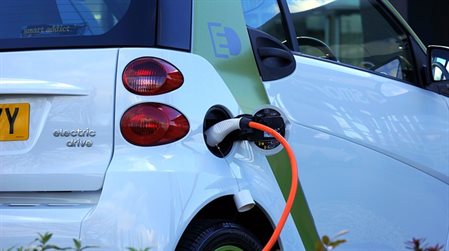“Batteries will form a cornerstone of a low carbon economy, whether in cars, aircraft, consumer electronics, district or grid storage. To deliver the UK’s low carbon economy we must consolidate and grow our capabilities in novel battery technology” Professor Philip Nelson, Chief Executive of the Engineering and Physical Sciences Research Council.
At the University of Birmingham we recognise the electrification of transport is a significant industrial opportunity for the UK. With the lithium ion (Li ion) battery system representing approximately 50% of an electric vehicle’s value, a £5 billion annual market value in the UK and around £50 billion in Europe can be forecasted.
 As well as increasing applications in terms of transport, Li ion and sodium ion batteries are widely used in smartphone, portable computer and sensors technologies, as well as in larger scale stationary power storage. While conventional Li ion batteries utilise a liquid electrolyte, at the Birmingham Energy Institute we are investigating the next generation of solid-state batteries. These batteries offer important advantages over conventional liquid electrolyte batteries, including improved safety, reduced size, and higher energy density.
As well as increasing applications in terms of transport, Li ion and sodium ion batteries are widely used in smartphone, portable computer and sensors technologies, as well as in larger scale stationary power storage. While conventional Li ion batteries utilise a liquid electrolyte, at the Birmingham Energy Institute we are investigating the next generation of solid-state batteries. These batteries offer important advantages over conventional liquid electrolyte batteries, including improved safety, reduced size, and higher energy density.
EPSRC Faraday Challenge: Recycling of Li ion batteries (ReLIB)
The
ReLIB project brings together a uniquely cross-disciplinary team of researchers from renowned research organisations with established links to international partners across the globe. The project will set out to recycle 100% of the materials contained in lithium ion batteries from the automotive sector by tackling the most demanding technical challenges in sensing, gateway testing, robotic sorting, re-use and recycling. The developed processes will be quantitatively assessed by specialists in lifecycle, technical and economic assessment. New business models and regulatory frameworks will be examined in conjunction with the complete, full-cycle value chain.
EPSRC ISCF GENESIS: Garnet Electrolytes for New Energy Storage Integrated Solutions
This interdisciplinary project involving researchers from chemistry, materials science, chemical engineering and industry aims to develop new Solid State Li ion batteries. Solid state cells have been identified as one of the most important future targets in battery research.
The importance of these batteries lies in their potential to deliver improved safety, reduced size, and higher capacity, as well as to open up new applications such as energy harvesting devices. In particular, the demonstration of a commercially viable scalable ceramic-based electrolyte with higher safety will offer large benefits in terms of UK wealth generation and investment opportunities. In terms of potential commercialisation, the optimisation of garnet Li ion conducting electrolytes, their scale-up synthesis and demonstration in all solid state batteries offers significant potential in terms of Li ion battery technology, with applications ranging from portable consumer devices to transport.
Optimising electrical vehicle battery packs
The UK is making a shift towards an electrical vehicle revolution which will bring the benefits of cleaner air and a boost for the economy, however, the performance of electrical vehicle battery packs are compromised by uneven temperature rises within the battery pack. At the Birmingham Energy Institute we are finding ways to overcome this challenge and optimise vehicle battery packs with thermally managed battery systems.
Compact battery packs offer a promising approach for plug-in hybrid electric vehicle propulsion due to their excellent power and energy performance. Within these battery packs the cells are packed closely to exploit the advantage of high energy and power density. Unfortunately, excessive or uneven temperature rises in an electrical vehicle battery pack significantly reduce the life cycle of the battery or could even cause an entire pack to fail violently.
Through the use of air-cooled active thermal management we are able to remove heat from energy packs that are under stressful operating conditions and achieve good temperature uniformity, however, the cooling system has to be designed with complicated control hardware (blowers and flow distributors), which are unfavourable for commercial applications.
Phase change materials (PCMs) can also keep the temperatures of individual cells in a favourable range but an increased amount of PCMs can significantly decrease the energy density of battery packs.
To overcome the shortcomings of these approaches, we are developing a hybrid thermal management approach that will combine the active (air- cooled) and passive methods which will ensure temperature uniformity and minimise the volume and power consumption. This hybrid approach will offer simpler and efficient cooling in comparison to the single cooling technique. This research will support industrialists in the design of better battery systems and will deliver the control strategies to create battery packs with higher efficiency, better reliability and a longer life time.